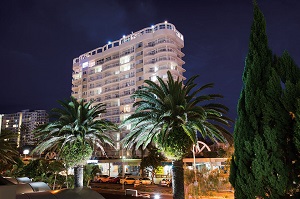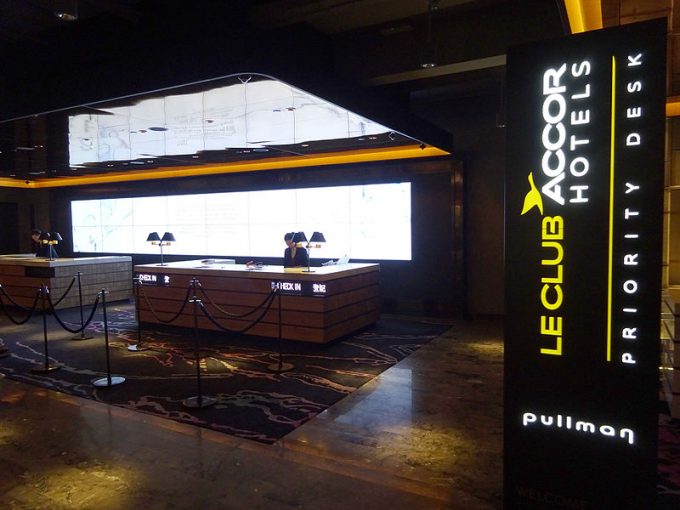
The evolution of timeshare
From its conception in Europe in the 1960s, timeshare has stood the test of time, securing itself a bright and positive global future.
In its early days, timeshare had a poor reputation for being a hard sell, with no flexibility. Over the years, corporations such as Marriott, Disney, Hilton, Hyatt, Wyndham and others concentrated their efforts in promoting the positive benefits of timeshare. Now consumers are realising the lifestyle benefits of timeshare and demand continues to increase.
The attractive timeshare options and opportunities now available to consumers is also a drawcard.
The American Resort Development Association states the following: The Global Alliance for Timeshare Excellence was established in 1999 by the leaders of timeshare associations in the United States, Canada, Latin America, Europe and the Middle East, Australia, and South Africa to promote the timeshare industry around the world. Each association retains its own identity, but collectively, the associations seek to cooperate on issues of common concern in order to advance the growth of the timeshare industry worldwide, the interests of their members, and the consumers they serve.
“Timeshare is a lifestyle investment and is one of those resilient businesses that consistently survives worldwide economic fluctuations because of its value proposition,” said Ramy Filo, CEO Classic Holidays—Australia & New Zealand and chairman of the board of Classic Holidays and Dial An Exchange.
“In traditional timeshare, each apartment is broken down into 51 weeks. While there are 52 weeks in a year, one week is for annual maintenance. For example, a building of ten apartments is owned by 510 people, who own the building as in any other strata, with running costs divided by 510. The building cannot be encumbered to any bank or lending facility.
Timeshare provides a quality standard for all units, whereas often in strata apartments the refit is dependent on the individual unit owners.
 “In Australia and New Zealand a body corporate is appointed and the timeshare owners nominate representatives to sit on the body corporate and manage the building on their behalf.
“In Australia and New Zealand a body corporate is appointed and the timeshare owners nominate representatives to sit on the body corporate and manage the building on their behalf.
“We have two companies: Classic Holidays, which manages timeshare of the 13 resorts in NZ and 18 in Australia. Dial An Exchange allows members to exchange their timeshare ownership around the globe,” explained Mr Filo.
“Exchange fees are paid in the currency of the country of the original booking, so everyone is clear about their own costs and without having to worry about currency exchange rates. They also have access to the resort facilities, at no extra cost.
“That’s where timeshare really kicks in, because of the 5000 resorts globally; owners are swapping their units, giving them the opportunity to travel.”
Timeshare surged in the mid to late 1980s. The Beach House Seaside Resort in Coolangatta is the single biggest timeshare resort in Australia and New Zealand with 132 two bedroom apartments. Timeshare is consistent because those who bought in the 1980s took children who are now adults taking their own families to enjoy Timeshare.
The product has changed since its initial conception. Now timeshare can be managed on a points basis, which allows you to use your points for accommodation and also for travel and leisure products, such as airfares. When you can’t use your timeshare for a year or two and don’t want to lose it, you can bank it with the exchange company and in one year take three or four weeks at once.
“A good component of timeshare sales is from the referral program,” said Mr Filo. “We deliver an in-house program for either a rental guest coming in or an exchange guest. We have a showroom where we present the timeshare concept to them.
Timeshare continues to be promoted to the public with a gift, voucher or a phone promotion to attend a presentation. Interested people are invited to experience the resort for a week at a heavily discounted rate, on the condition that they attend a presentation to understand the timeshare concept.
“We developed variable ownership in 2008, where you can own a timeshare for 10, 20, 30 or 40 years and are not fixed to a lifetime arrangement. After the initial timeshare purchase price, there is an annual fee for running costs and body corporate fees that vary depending on the location of the apartment, whether high-rise or low and what facilities are offered.
“NZ operates under traditional body corporate law under real estate regulations,” said Mr Filo. “More disclosure is required in Australia, because it falls under management investment laws.”
From an operational point of view—the resorts in NZ tend to be more boutique and smaller— most of them are around 24 to 30 apartments.
Classic Holidays manages 65,000 timeshare owners in Australia and NZ. “Members take more than one holiday and in 2014 there were about 100,000 holiday bookings.” Mr Filo said.
Timeshare always booms when real estate is down, because it is a way of selling real estate in small parts.
“We found the biggest uptake is the people who normally don’t consider taking a holiday, like the self-employed and farmers. They realise they need to take advantage of their lifestyle investment and then wished they had done so long ago,” Mr Filo stressed.
“Timeshare takes into consideration the different lifestyles of changing generations. For years, families have enjoyed holiday apartment accommodation. Today, families continue to enjoy the same concept, yet with much more flexibility.”
“Timeshare continues to lead in the hospitality industry with steady growth. It is one of the profitable sectors of the hospitality industry,” said Barry Robinson—president and managing director of Wyndham Vacation Resorts Asia Pacific.
In 1991, Wyndham Vacation Ownership revolutionised the traditional timeshare model with the launch of points-based ownership allowing timeshare owners the flexibility to choose the timing, duration, location and accommodation options for their holidays. This form of vacation ownership was then adopted in the South Pacific.
Wyndham first entered Australia as Trendwest South Pacific in 2000. Then in 2007, Trendwest South Pacific was rebranded to Wyndham Vacation Resorts Asia Pacific.
Timeshare owners can now opt to exchange their timeshare points or credits to holiday across other resort networks, and depending on their level of membership, exchange their points or credits for cruise holidays, travel and other experiences. The basic concept of delivering a lifetime of memorable holidays and the way in which they can prepay for those holidays, has not changed.
“Since 2010 we have been rolling out a mixed-use development model, operating hybrid club and hotel resorts,” Mr Robinson told AMG. “Each property may include vacation ownership apartments, hotel rooms and privately owned apartments as key components within one property. This style of development creates great synergies and presents tremendous benefits to hoteliers and hotel investors.
 “WordMark South Pacific Club resorts run at average occupancy rates of 86 per cent all year round. When you run a hotel that accommodates both vacation owners and hotel guests it provides a constant boost to your food and beverage outlets and creates multiple streams of revenue. Vacation ownership provides timeshare owners with the flexibility and affordability of securing tomorrow’s holidays today without the hassles of owning a holiday home. Often vacation club owners comment that, ‘We never relaxed when we had a holiday home. Every time we would visit, there would always be something to do’.
“WordMark South Pacific Club resorts run at average occupancy rates of 86 per cent all year round. When you run a hotel that accommodates both vacation owners and hotel guests it provides a constant boost to your food and beverage outlets and creates multiple streams of revenue. Vacation ownership provides timeshare owners with the flexibility and affordability of securing tomorrow’s holidays today without the hassles of owning a holiday home. Often vacation club owners comment that, ‘We never relaxed when we had a holiday home. Every time we would visit, there would always be something to do’.
“Many WorldMark South Pacific Club owners tell us they take more holidays now that they have their vacation ownership and spend more quality time with their family.
“Purchasers of vacation ownership as marketed by Wyndham Vacation Resorts Asia Pacific pay a once-only acquisition cost for vacation credits, which are then used as a currency to stay in any of the resorts within the WorldMark South Pacific Club by Wyndham. They also pay annual levies, which are similar to a body corporate fee and contribute to ongoing upkeep of the resorts.”
Vacation credits are renewed in owners’ accounts annually for the life of the club providing owners with ongoing holidays during that time. The WorldMark South Pacific Club, for instance, continues until 2080.
Club owners can take family and friends on holiday with them; offer holidays as a gift using their credits or bequeath their vacation ownership to ensure future generations experience the joy of holidays.
Timeshare is a product that has really evolved into something very sophisticated and super flexible. It is worlds apart from the timeshare of the 1980s where people bought into one fixed-week per year at one resort. It is now a multibillion dollar industry globally with vast networks of resorts.
In Australia the industry is also regulated by Australian Securities & Investments Commission. The Australian Timeshare and Holiday Ownership Council was established in 1994 to continually foster a high standard of ethics and adherence to industry best practice amongst members. All members are required to abide by a Code of Ethics and a Code of Practice.
“The great thing is that owners use their timeshare. During an economic downturn, when other travellers would typically tighten their purse strings, occupancy rates at our club resorts remain high,” added Mr Robinson.






